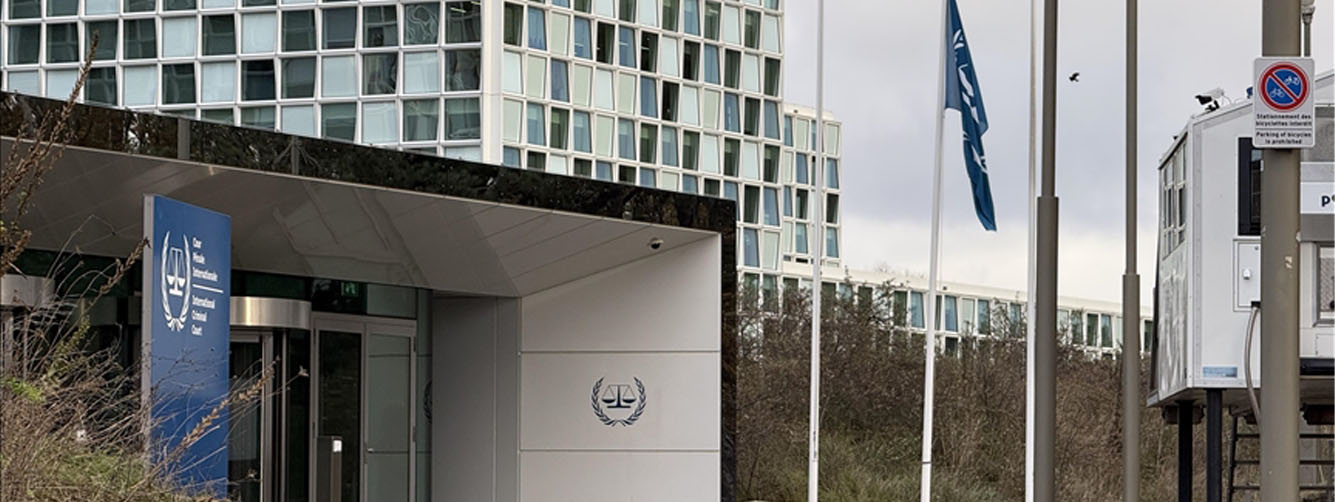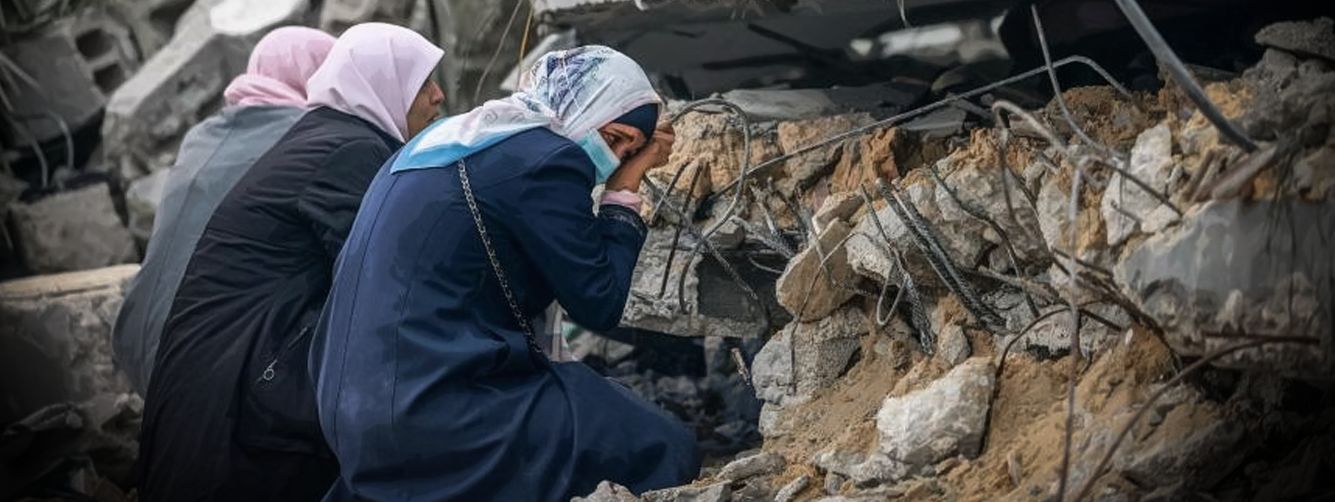I start by congratulating my right hon. Friend the Member for Manchester, Gorton (Mr. Kaufman) on raising what is an issue of concern throughout the House. We could have a long debate about whether we are talking about a wall or a fence, but it is clear that although it could be described as a fence, a significant proportion of it is a wall, as was described. The effect of that wall or fence is an issue that we should discuss in the House.
Bethlehem has a unique and historical status, and it stands as an example of how Palestinian towns in the west bank will be affected by the building of the structure. Although my right hon. Friend referred to the Government's position, it is worth restating it. My right hon. Friend the Foreign Secretary said in the House of Commons as recently as 14 October that we consider the building of the wall on Palestinian land to be illegal, and we need to underline that point.
We are not alone in holding that view. The United Nations General Assembly and leaders of all the European Union member states at the European Council clarified their opposition to the route of the fence. President Bush and Secretary of State Colin Powell also consider the route of the fence to be a problem and have urged the Israeli Government not to build it on Palestinian land, but along the green line between Israel and the Palestinian territories. There is a significant degree of international consensus, and cross-party consensus in the House, on the issue.
I want to make it clear that the Government understand that the Israel Government must take precautionary measures within international law to protect their citizens. That is undoubtedly the duty of all Governments. However, although the wall may give some immediate relief from the relentless series of terrorist attacks inflicted on the state and people of Israel, building the fence on Palestinian territory will inflame tensions in the region and do nothing to solve the crisis. As my hon. Friend the Member for Preston (Mr. Hendrick) said, in common with many other Members, it will give only an illusion of security to the people of Israel in the longer term.
The proponents of the wall claim that it will separate the Israeli people from the Palestinians, and my hon. and right hon. Friends attested to that from their direct experience of the situation. However, on completion of the next section, agreed by the Israeli Cabinet on 1 October, an estimated 79,000 Palestinians will be left to the west of the wall-in other words, on the Israeli side of the barrier. Those people will not be able to enter Israel freely and will have severely limited access to essential services, such as schools and hospitals, in the west bank. A powerful point was made about the situation that will arise if young people cannot go to school and are left to their own devices and the temptations that exist.
To continue, I think that the fence will further damage the already desperate humanitarian and economic situation of the Palestinian people. Already, closures, curfews and demolitions have led to the virtual collapse of the Palestinian economy-60 per cent. of Palestinians now live on less than $2.10 a day. To put it bluntly, the fence is making that situation worse.
It is estimated that more than 100,000 olive and citrus trees have already been destroyed along the route of the wall; that damages a major part of the Palestinian agricultural economy and makes that situation worse. The regulations imposed by the Israeli Government prevent farmers from getting labourers and machinery to their fields. There are also too few access gates in some areas. Where they do exist, as my right hon. Friend the Member for Manchester, Gorton said, they are often not open at the right time of day. On some occasions, they may be shut for days on end.
In addition to limiting the Palestinian people's access to their land, the fence also restricts some Palestinian access to the west bank's water resources. Without ready access to that water, it will become more and more difficult for the Palestinian people to live independently. From a political perspective, the wall also threatens to establish new facts on the ground that will make it ever more difficult to achieve the two-state solution set out in the road map, to which the Israeli Government are committed and which the international community is pushing as strongly as it can.
It is claimed that the wall could be removed when there is a political solution and that the route has no long-term political significance. Yet the estimated $1 billion cost of the wall will be a powerful disincentive to moving it once it is built-that is a strong argument. It will become more and more difficult to remove the settlements that will continue to grow on Palestinian-occupied territory behind the wall unless and until the Israeli Government put a freeze on their development-something that we have been calling for strongly.
As my hon. Friend the Member for Bethnal Green and Bow (Ms King) said, the fence being built around east Jerusalem will cause particular problems for the residents there and for those of the surrounding towns, including Bethlehem. As my right hon. Friend the Member for Manchester, Gorton said in opening the debate, the wall around east Jerusalem may separate it from some of the holiest places in the Christian faith.
I have already mentioned the serious negative effect that the fence will have on the Palestinian economy throughout the west bank, but I particularly recognise the concerns put forward by my right hon. Friend the Member for Manchester, Gorton about the effect on the residents of Bethlehem. Bethlehem is likely to encounter greater difficulties in getting its agricultural produce to large markets in Jerusalem. Certainly those residents of Bethlehem employed in Jerusalem will find it more difficult to get to work. That will have an impact on tourism and pilgrimages.
The fence is not being built in a vacuum. As I said earlier, the Government understand the Israeli Government's need to seek security for its citizens. Right-thinking people on both sides of the argument condemn the regular and devastating suicide attacks to which the Israeli people have been subjected. The Government's goal in working with the rest of the international community is a peaceful resolution of the conflict in the middle east, once and for all, which delivers a secure Israel within internationally recognised borders and a viable Palestinian state.
The achievement of that goal, far more than a wall, fence or barrier, will provide real and long-term security to people in the region. People across the divide seek that objective, and an end to the violence. With commitment and courage, the parties can overcome the difficulties together and realise that vision.
The only long-term, credible way to achieve the objective remains the quartet's road map. If such a process did not exist, we would have to establish a similar process. It is the only mechanism available, and I urge every Member connected with the debate to put the force of their argument behind it.
The Government's commitment to the road map is on the record and unparalleled; we want the process to be published, and up and running, and we are pressing for it to be implemented.
In terms of taking the process forward, I simply do not see another mechanism apart from the road map. As I said, if such a mechanism did not exist, we would have to invent it. I take the point that since the publication of the road map, the Israeli Government have issued tenders for more than 1,500 housing units, 900 in the past month alone. Israeli action to remove settlement outposts has ground to a halt. There needs to be further action by the Palestinian authorities to take forward fully the process to which they have committed themselves.
It was extraordinarily helpful for my right hon. Friend the Member for Manchester, Gorton to raise the issue and allow it to be aired. Hon. Members who have observed the situation on the ground and described in detail some of the problems created by the fence and the wall have made an important contribution to the process. I pay tribute to my right hon. Friend for publicising the issue; I recall the television programme that he undertook last year, which brought some information and clarity to these issues.
It is important that we urge it on both sides that we face a very grave situation. We need to see movement by the Palestinian Authority on security, but at the same time we need the Israeli Government to tackle the issue of the settlements, the wall and the fence.







